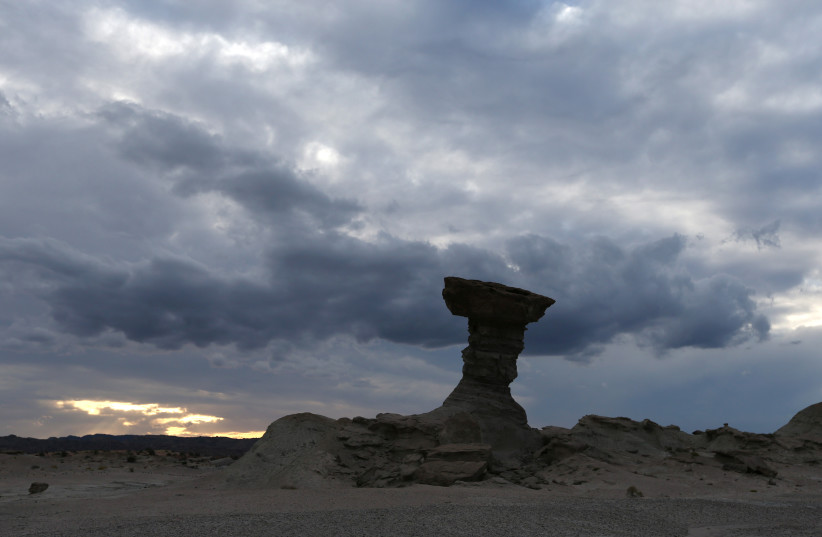The variations in the diversity of plants and animals during the time of the first dinosaurs are not related in any way to climate change recorded in that period, a new study published this week found.
The study, led by University of Utah researchers and researchers from the US National Scientific and Technical Research Council (CONICET), found that the fluctuating variations of abundances and diversity of species between 231 and 226 million years ago are better explained by preservation and sampling of known data than by climate change.
As part of the peer-reviewed study, published in the Frontiers in Earth Science scientific journal, the research team investigated northwestern Argentina's Ischigualasto Formation, fossil-rich rocks which date to the Late Triassic period.
Researchers found a clear change in conditions in the middle of the rock formation, changing from warmer and drier to more humid conditions.
However, no major changes could be identified in the fossil record.

Climate change of sampling biases?
“We conclude that variations in the abundance and diversity of species, as recorded by their first and last appearances in the fossil record, are better explained by preservation and sampling biases than by changes in climate,” lead author of the study, CONICET's Adriana Mancuso said.
"What we see is that how many specimens were collected from each interval of the sequence, and the chemical and physical characteristics that allow greater or lesser preservation of the remains of animals and plants were significant factors," Mancuso explained. "These two factors, collection and preservation, have more influence on the increase or decrease of abundance and diversity than the climate changes recorded."
The group did manage to find two groups of reptiles that respond to climatic variations. These are the rhynchosaurs (herbivorous early archosauromorphs) and pseudosuchians (crocodilian-line archosaurs).
"“We did find that the abundance of rhynchosaurs and extinction of a few pseudosuchian species appear to coincide with a climate shift,” said Randall Irmis from the University of Utah.
The Environment and Climate Change portal is produced in cooperation with the Goldman Sonnenfeldt School of Sustainability and Climate Change at Ben-Gurion University of the Negev. The Jerusalem Post maintains all editorial decisions related to the content.
